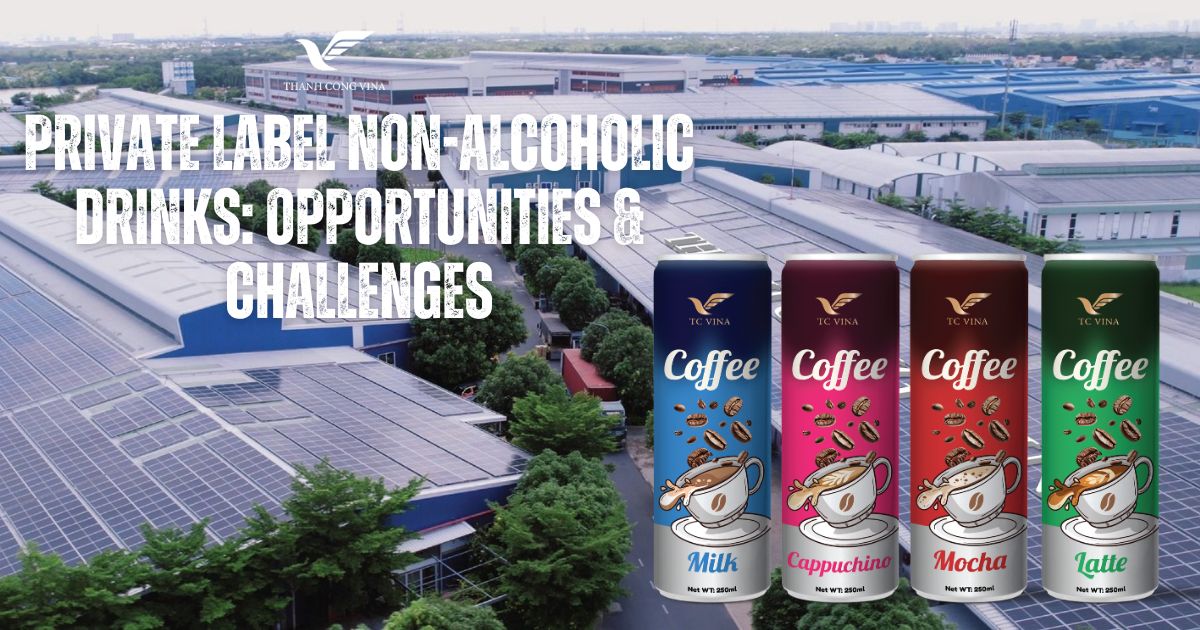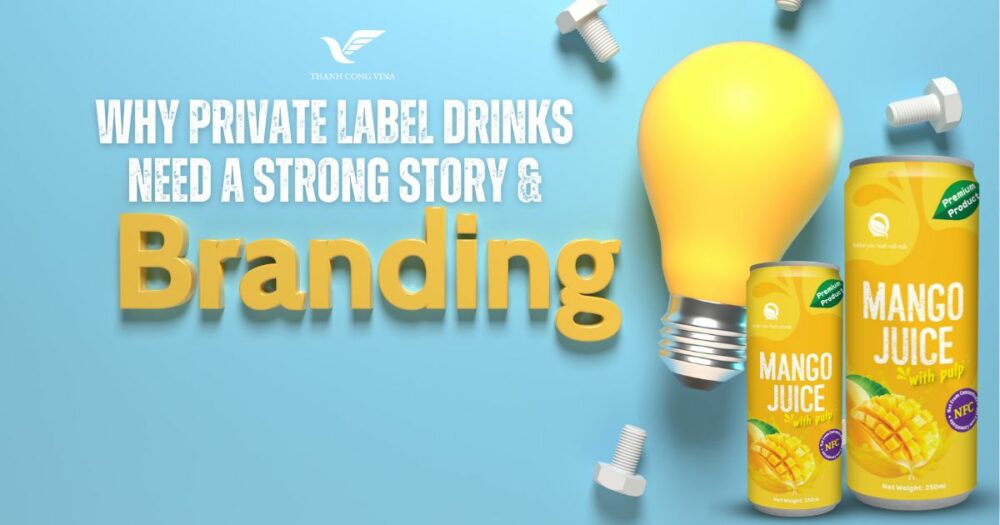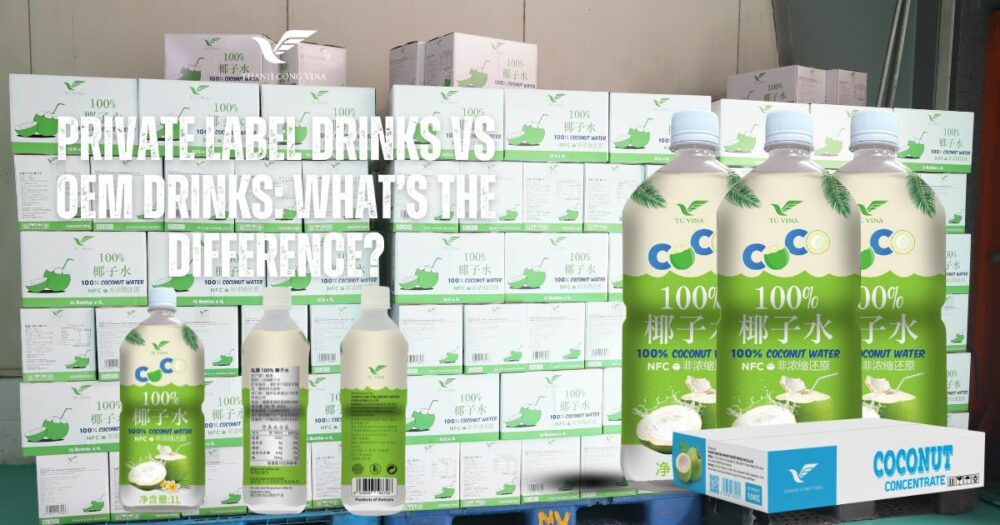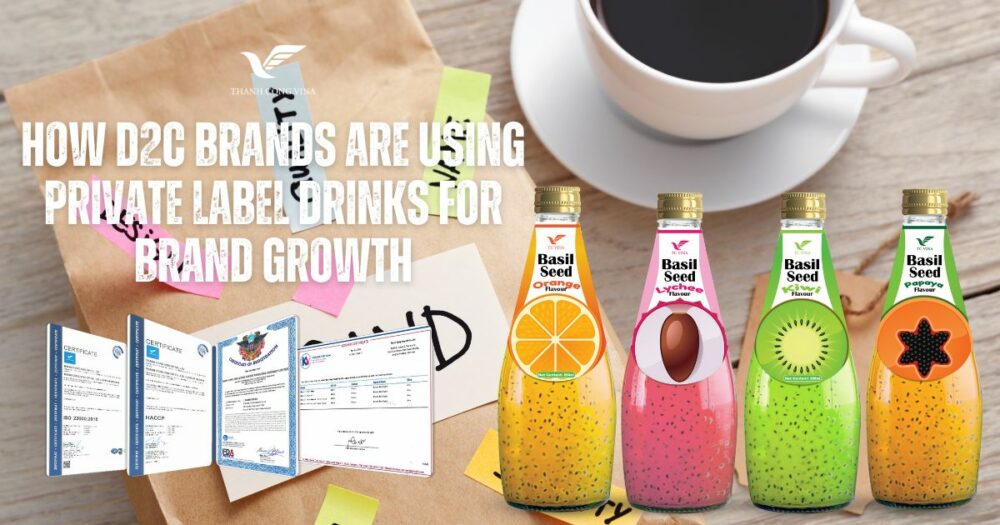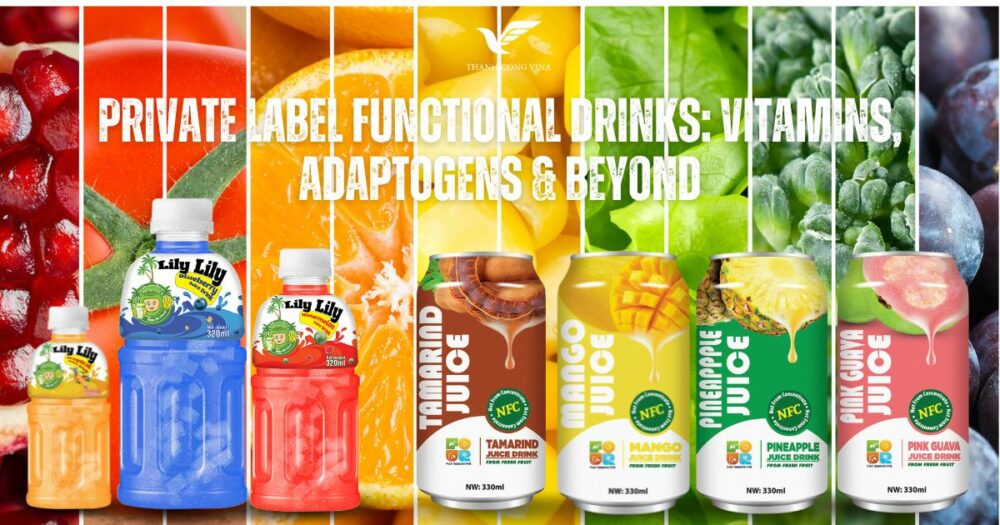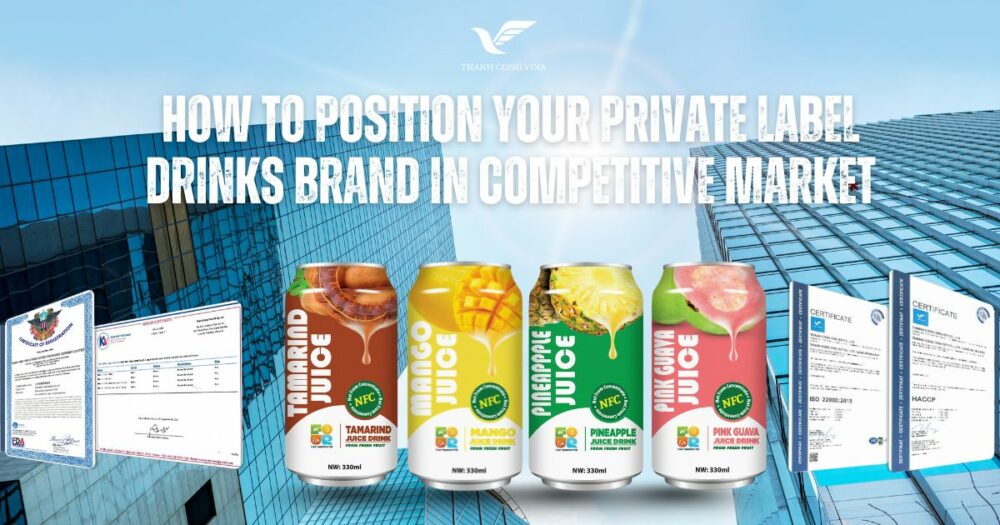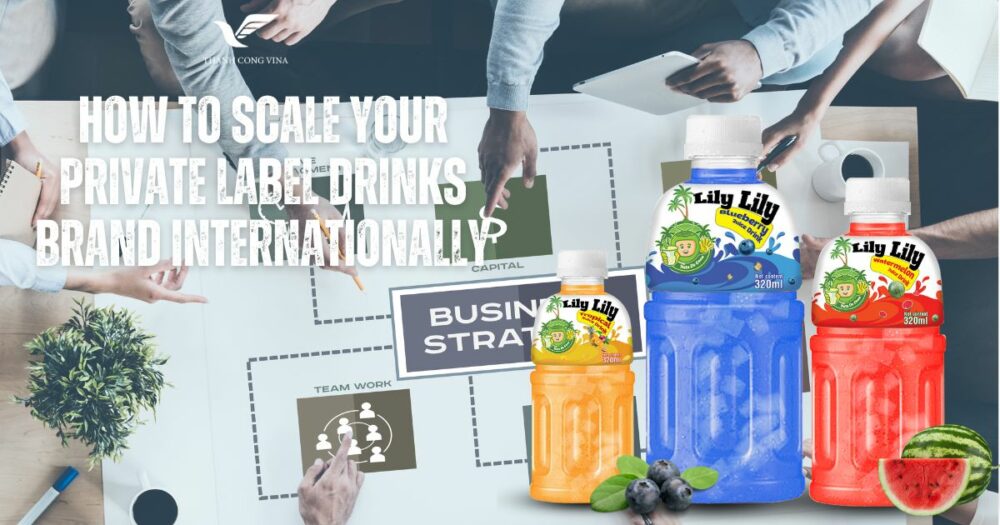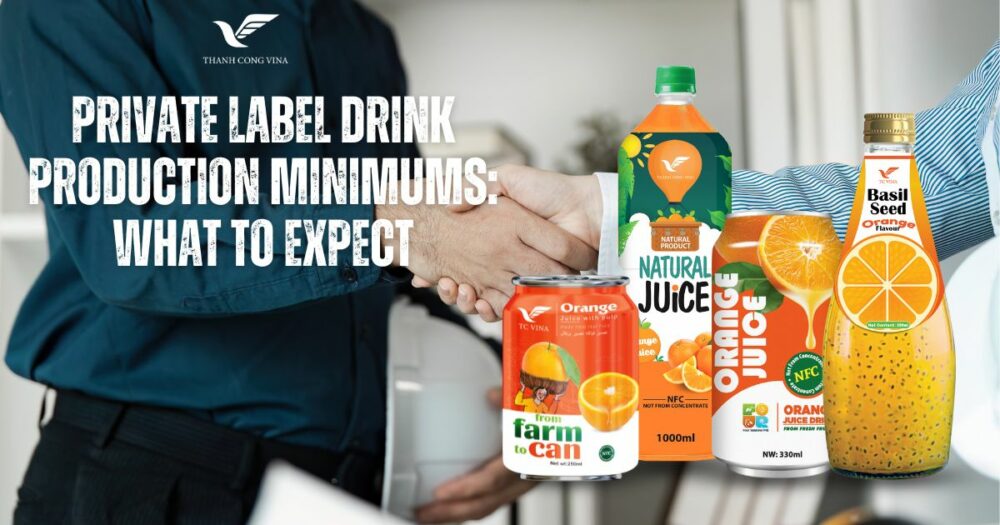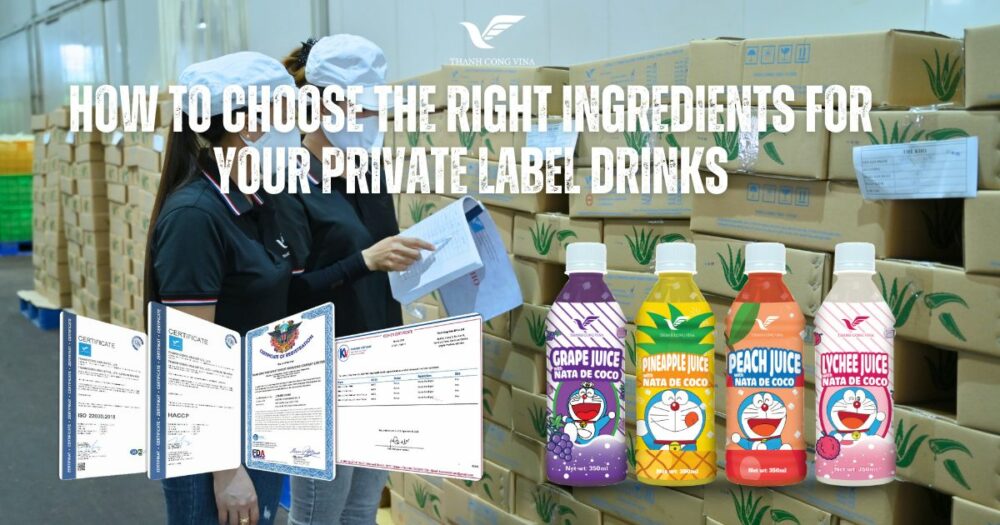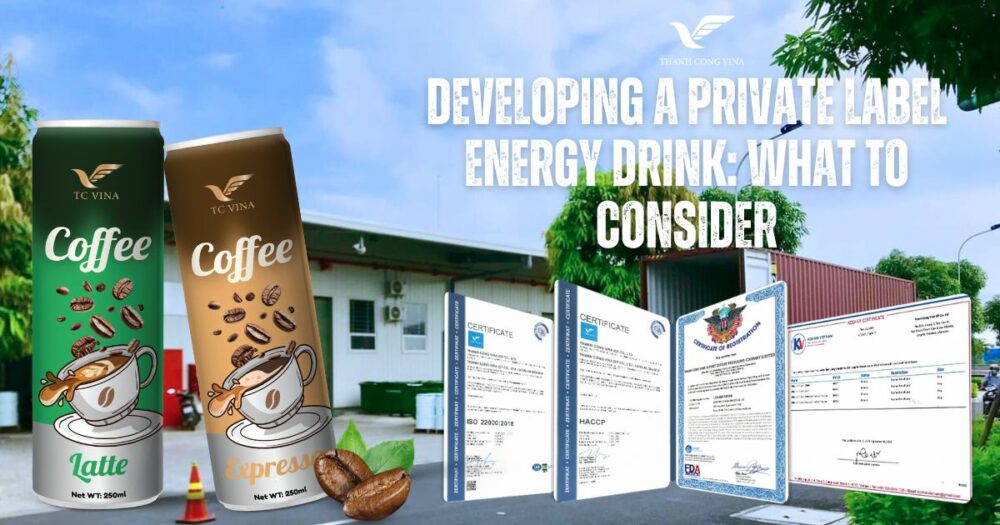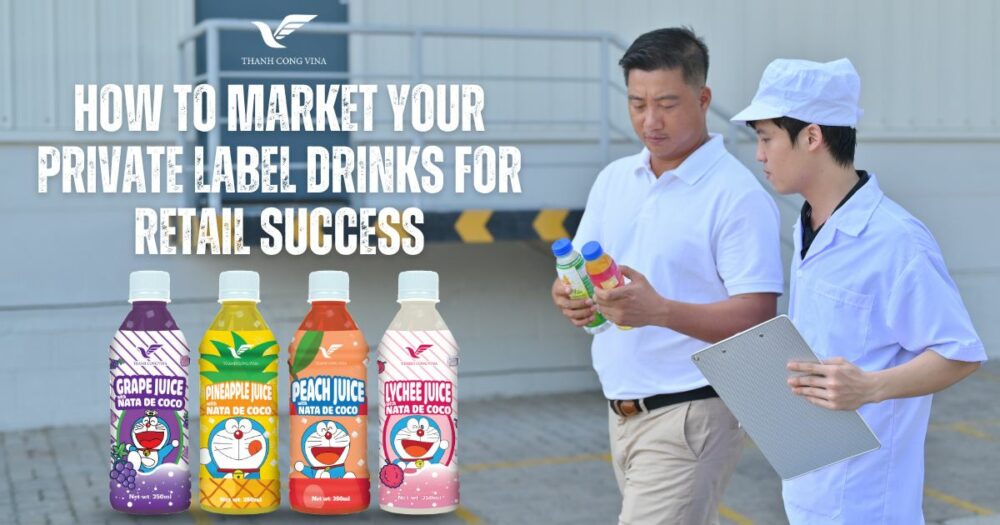The global beverage sector has entered a transformative decade, with consumer preferences shifting rapidly toward health, personalization, and functional benefits. This shift has accelerated the rise of Private Label non-alcoholic drinks, giving retailers, distributors, and OEM partners new opportunities to capture market share without the heavy investment typically required to form a traditional beverage brand. Private label beverages now span multiple categories—juices, RTD teas, coffees, sparkling drinks, energy beverages, plant-based choices, and more.
Yet despite impressive growth, private label development is not without challenges. Market competition has intensified, consumer expectations for quality have risen, and international compliance standards demand careful planning. For businesses aiming to launch or scale a private label beverage line, understanding the strategic landscape is essential.
This article explores the major opportunities and challenges, offering a full roadmap for companies planning to enter the private label non-alcoholic drinks market sustainably and profitably.
1. The Global Growth of Private Label Non-Alcoholic Drinks
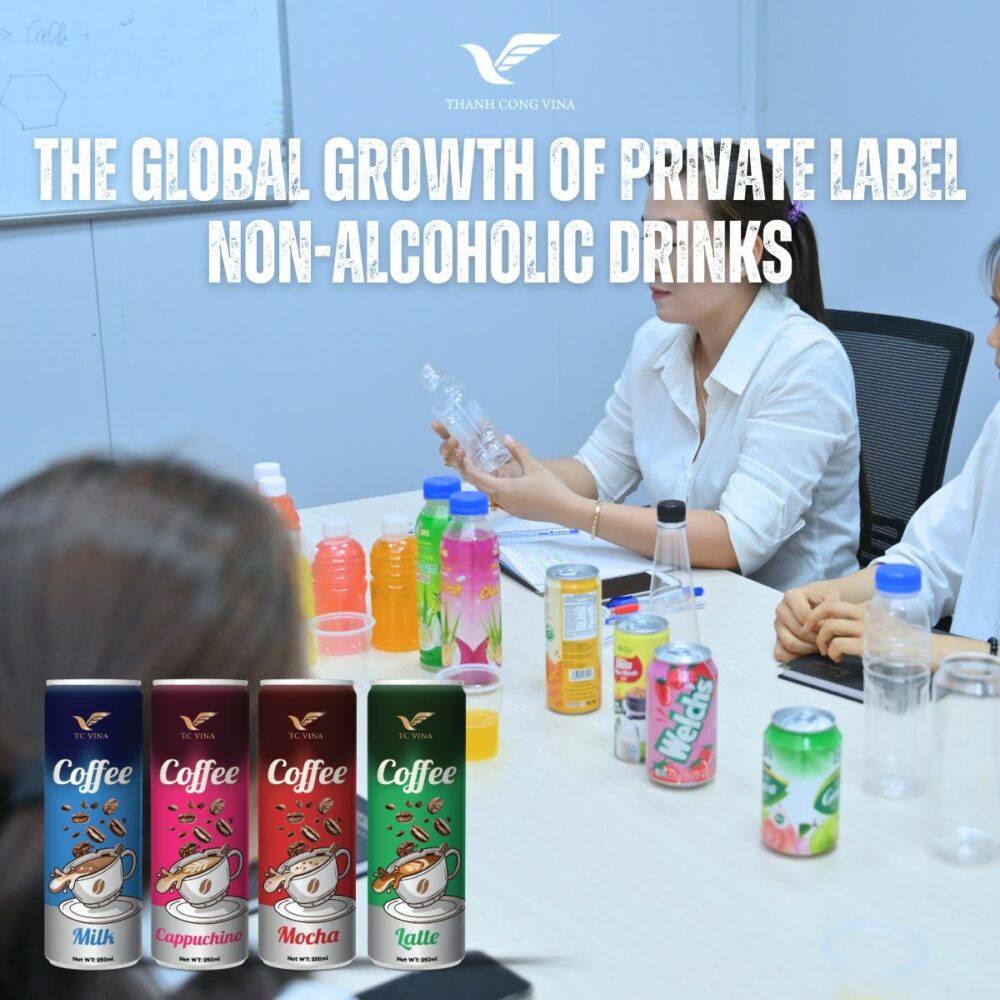
The Global Growth of Private Label Non-Alcoholic Drinks
1.1 Expanding Market Demand Across Categories
The global adoption of private label beverages is fueled by shifting purchasing patterns and the growth of modern retail systems. Supermarkets and convenience store chains increasingly prefer to develop their own brand portfolios, as this strategy provides better control over pricing and inventory. The non-alcoholic beverage sector, in particular, has benefited from this shift because consumers are more health-conscious and willing to experiment with new drink formats.
Private label juices, sparkling fruit beverages, teas, and functional drinks have experienced consistent growth, especially in markets like Europe, North America, and Asia-Pacific. Demand for clean-label drinks, sugar-free options, and natural ingredients continues to rise.
Retailers who develop private label beverages can respond to these demands much more quickly than large legacy beverage companies, which often require long development cycles.
This agility gives private label brands a competitive advantage. Many product categories that were once dominated by global corporations now share space with private label offerings that maintain comparable quality and flavor while remaining cost-effective.
This shift is especially noticeable in categories like fruit juice drinks, coconut water, kombucha, flavored waters, ready-to-drink coffee, and functional beverages.
1.2 Competitive Advantages for Retailers and Distributors
Private label beverages allow retailers to control pricing, brand positioning, and customer experience. With tighter margins in the beverage industry, owning a private label line offers significant financial benefits. Distributors can also expand their portfolios with exclusive products, gaining leverage in negotiations with retail partners.
Another advantage is the ability to diversify SKUs rapidly. Retailers can introduce multiple flavors, sizes, or packaging designs without going through long approval processes typical of multinational brands.
Beverage OEM manufacturers support this speed by offering ready-to-customize formulas, flexible production lines, and scalable MOQs.
Additionally, private label beverages tend to create stronger customer loyalty. Shoppers who trust a retailer’s brand often repurchase consistently, especially if the quality-to-price ratio is high. This contributes to predictable sales and long-term profitability for businesses positioned within the non-alcoholic drinks sector.
2. Key Opportunities in Private Label Non-Alcoholic Drink Development
2.1 Custom Formulas and Nutritional Innovation
One of the most exciting opportunities within the private label beverage market is the ability to develop custom, high-value formulas that are difficult for competitors to replicate. Brands can tailor beverages to meet specific lifestyle needs—low-sugar options, high-protein blends, antioxidant-rich juices, vitamin-enhanced sparkling drinks, or herbal-based wellness beverages.
Nutrition-forward consumers appreciate transparency and authenticity, and private label manufacturers can incorporate premium ingredients such as natural fruit concentrates, organic sweeteners, plant-based extracts, and cold-pressed juices. T
hese niche ingredients help differentiate private label beverages in a crowded market.
Brands can also target emerging health trends such as adaptogenic drinks, collagen beverages, probiotic juices, or electrolyte-infused water. This flexibility drives innovation and positions private label drinks as modern and competitively relevant.
2.2 Packaging Flexibility and Sustainability Integration
Private label beverage developers can leverage advanced packaging solutions that meet both aesthetic and environmental expectations. Sustainable packaging—recyclable PET, glass bottles, aluminum cans, and biodegradable labels—is in high demand among eco-conscious consumers.
Retailers and distributors can customize bottle shapes, label materials, printing techniques, and color schemes to create an identity aligned with their customer base. This level of personalization is significantly easier to achieve with private label manufacturing partners who already have flexible production lines.
Sustainability also presents a major branding opportunity. By integrating eco-friendly packaging and clear environmental messaging, private label drinks can appeal to consumers who prioritize responsible consumption. This strengthens the overall brand reputation and enhances long-term market positioning.
3. Consumer Behavior Driving Private Label Beverage Growth
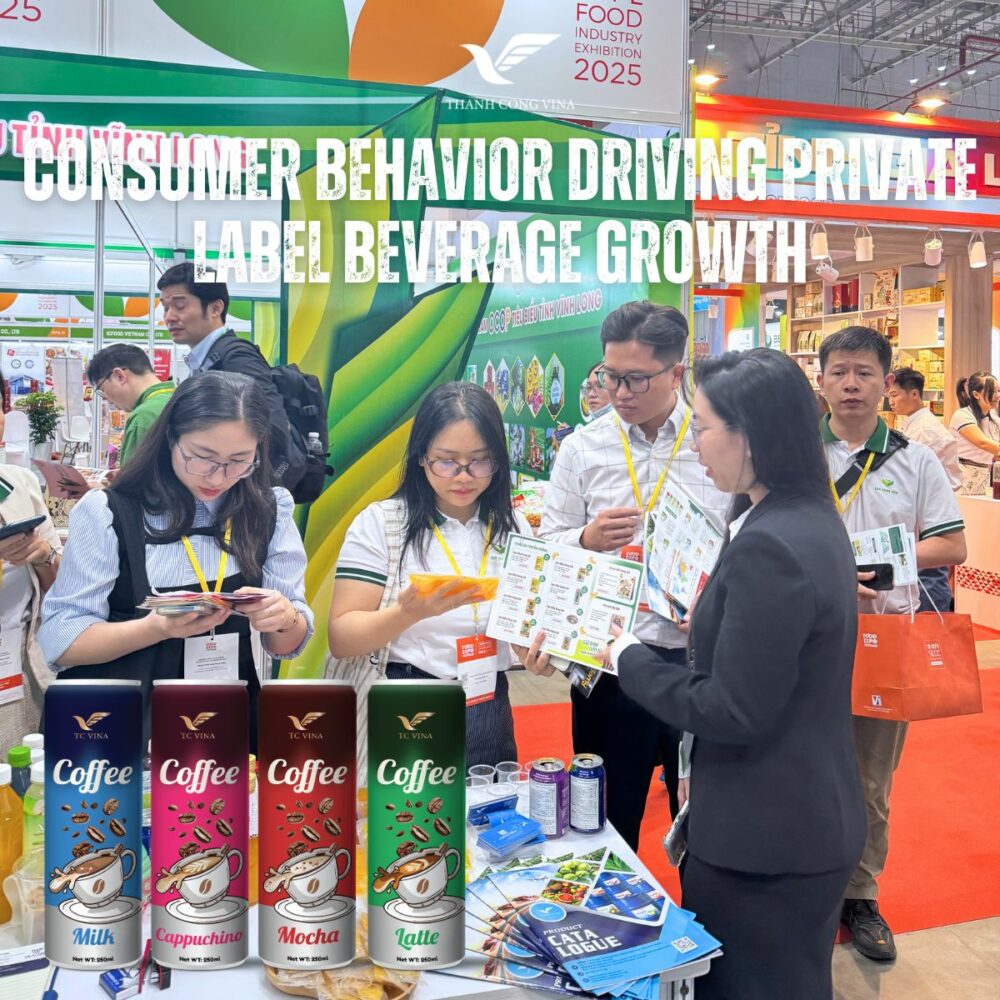
Consumer Behavior Driving Private Label Beverage Growth
3.1 Preference for Affordable Quality
The economic landscape of recent years has intensified consumer interest in products that offer strong value without compromising quality. Many buyers now compare private label beverages to national brands and often find that the quality is equal or even superior.
Studies show that consumer trust in private label products has increased significantly due to improved manufacturing standards and consistent taste performance.
This growing trust supports wider acceptance of private label non-alcoholic drinks in everyday consumption. As long as the product maintains high manufacturing standards and a competitive price point, consumer loyalty tends to remain strong.
3.2 Health-Conscious Purchasing Habits
Health and wellness trends have reshaped the beverage sector. Shoppers now evaluate drinks based on ingredients, sugar content, natural claims, and functional benefits. Private label beverages can directly target these preferences through carefully curated formulas that offer real nutritional value.
Juices with no added sugar, antioxidant-rich fruit blends, coconut water, herbal teas, and vitamin-infused beverages are among the most popular categories. Retailers who position their private label drinks as clean-label alternatives can capture a large segment of health-conscious consumers looking for trustworthy and affordable products.
4. Manufacturing and Supply Chain Advantages for Private Label Brands
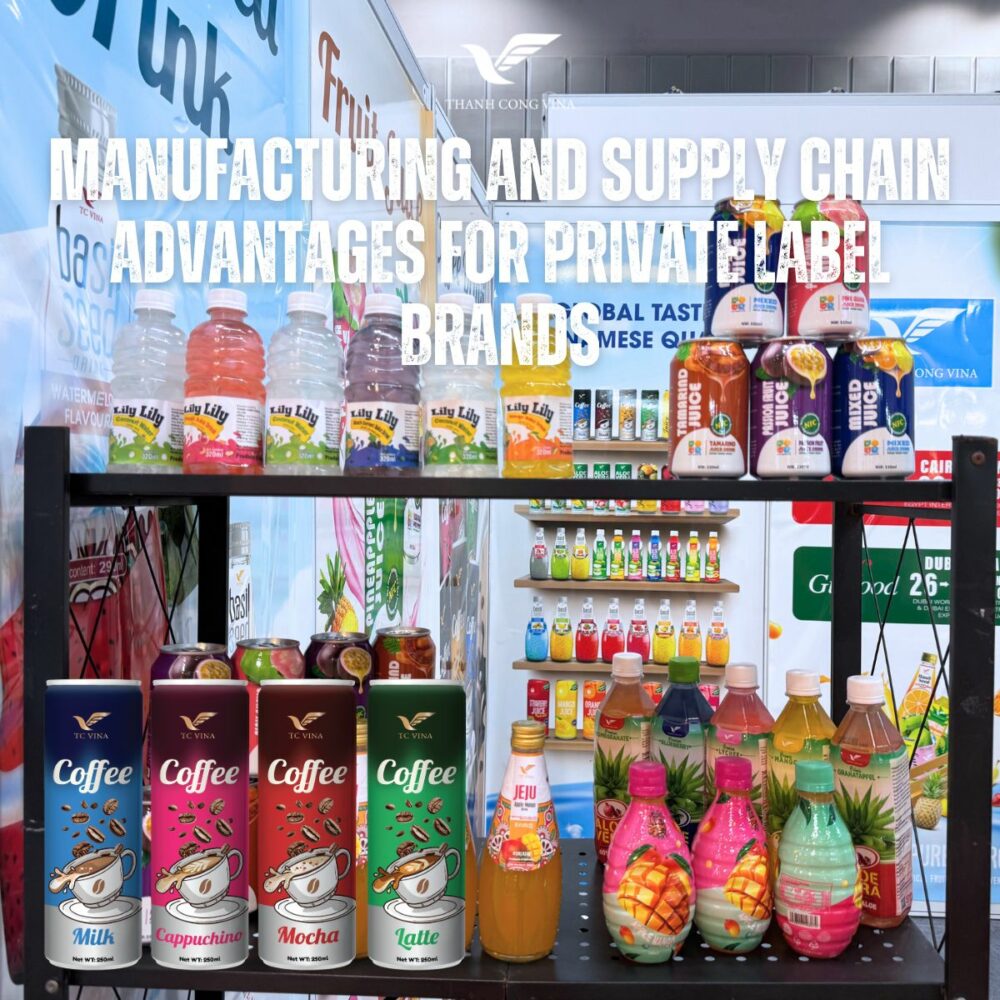
Manufacturing and Supply Chain Advantages for Private Label Brands
4.1 Cost-Effective Production and Scalability
Private label beverage production is cost-efficient because manufacturers handle all aspects of formulation, production, bottling, quality control, and logistics. This eliminates the need for brands to invest heavily in equipment or technical expertise.
Additionally, private label factories can scale production from small pilot batches to full commercial quantities. This ensures that brands can test market reactions, refine formulas, or launch limited-edition products without risking long-term financial commitments.
4.2 Compliance and Certification Support
Entering global markets requires compliance with food safety standards such as HACCP, ISO, FDA, and HALAL. Private label beverage manufacturers typically provide full documentation and certification support, ensuring that every product meets the required standards for export.
This provides brands with a strong regulatory foundation and minimizes legal risks, especially when targeting competitive markets with strict import requirements.
5. Challenges Facing Private Label Non-Alcoholic Drink Brands
5.1 Market Competition and Brand Differentiation
While opportunities are abundant, the private label beverage sector is highly competitive. New brands appear rapidly, and retailers often compete directly with one another. Without a strong brand positioning strategy, many products struggle to stand out on shelves.
Brands must differentiate themselves through superior quality, unique formulations, attractive packaging, or sustainability commitments. Storytelling also plays a crucial role—brands that clearly communicate their value proposition tend to outperform those without strong messaging.
5.2 Dependence on Manufacturing Partners
Because private label brands rely heavily on OEM manufacturers, selecting the right partner is essential. Issues such as poor communication, inconsistent quality, delays, or insufficient certifications can negatively affect product performance.
Brands should evaluate manufacturers carefully, checking capabilities in:
-
product development
-
ingredient sourcing
-
quality control
-
compliance documentation
-
production capacity
-
export experience
A reliable manufacturing partner reduces risks and supports long-term growth.
6. Future Trends Shaping the Private Label Beverage Industry
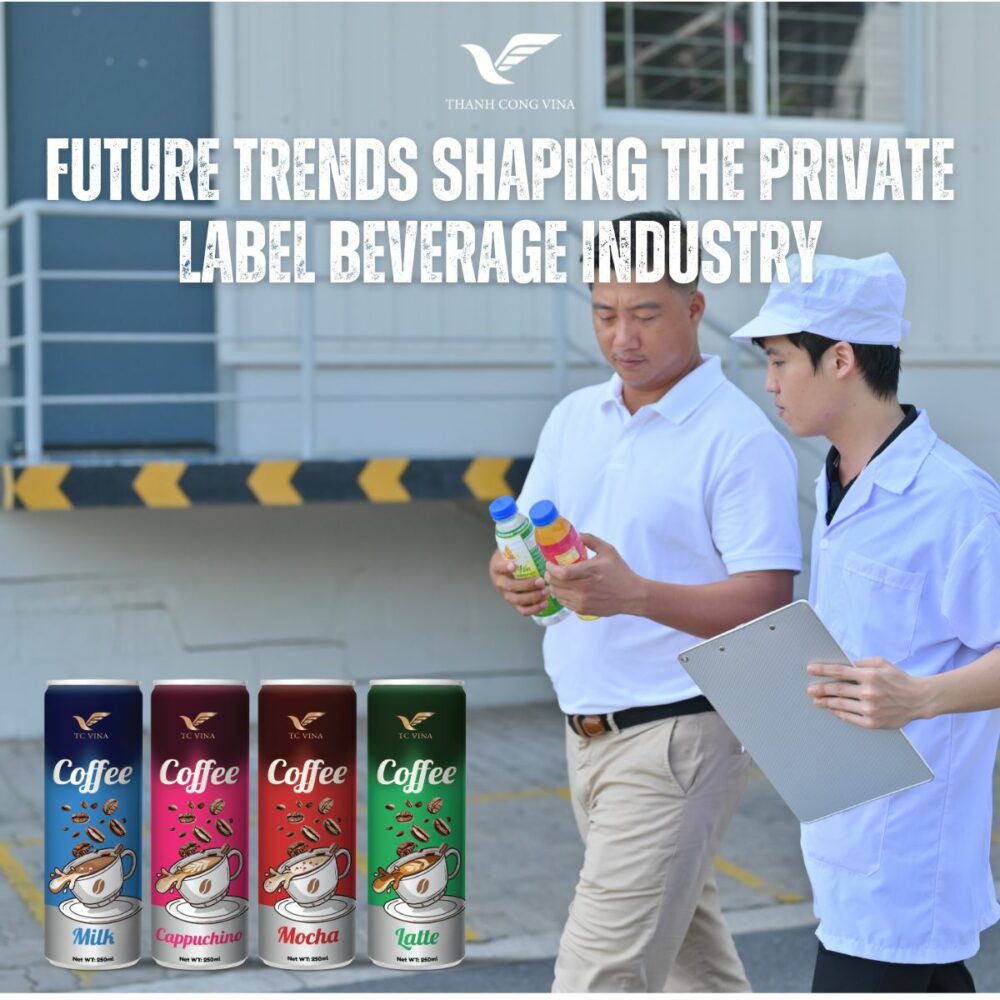
Future Trends Shaping the Private Label Beverage Industry
6.1 Functional and Wellness Beverages
The next phase of private label growth focuses heavily on functional beverages. These drinks provide targeted benefits such as immunity support, stress reduction, hydration, focus enhancement, or digestive health.
Ingredients like probiotics, electrolytes, vitamins, adaptogens, botanicals, and herbal extracts will continue shaping beverage innovation. Private labels brands that invest early in these categories can secure leadership positions as consumer demand strengthens.
6.2 Digital Retail and E-Commerce Expansion
E-commerce has become a major distribution channel for private label beverages. Retailers and distributors can now sell directly to consumers through online marketplaces, subscription services, and targeted advertising campaigns.
This shift allows private label drinks to reach global buyers more efficiently and with lower marketing costs. Brands can also collect valuable consumer insights through digital analytics, optimizing product development and marketing strategies accordingly.
Conclusion
The rise of Private Label non-alcoholic beverages is reshaping the global drinks industry with faster innovation cycles, customizable formulas, and greater accessibility for both retailers and consumers. However, success in this expanding market requires a balanced approach that considers product quality, regulatory compliance, packaging innovation, and brand differentiation.
By understanding both the opportunities and challenges, businesses can build sustainable, competitive beverage portfolios that meet modern consumer demands.
For brands seeking reliable manufacturing, experienced formulation support, and export-ready beverage solutions, partnering with a specialized OEM provider makes all the difference. TCVINA offers the capabilities and certifications required for international markets, along with a deep understanding of product customization across diverse beverage categories.
With expert production systems, flexible MOQs, and strong global partnerships, Thanh Cong Vina stands as a trusted partner for private label beverage development worldwide.

